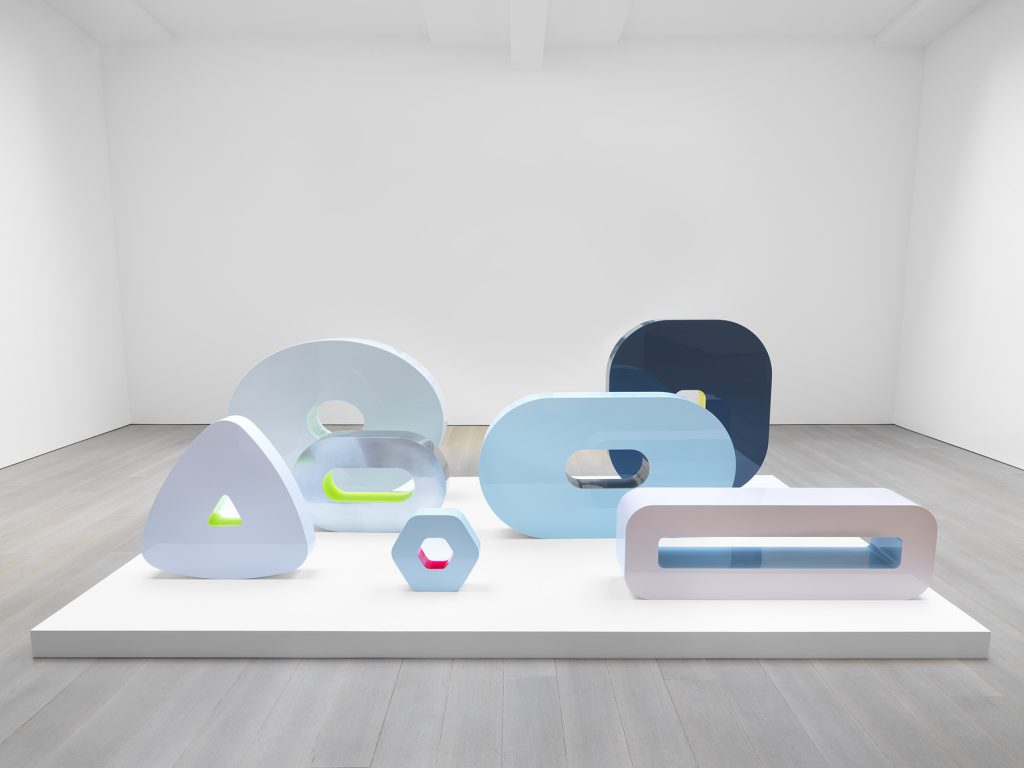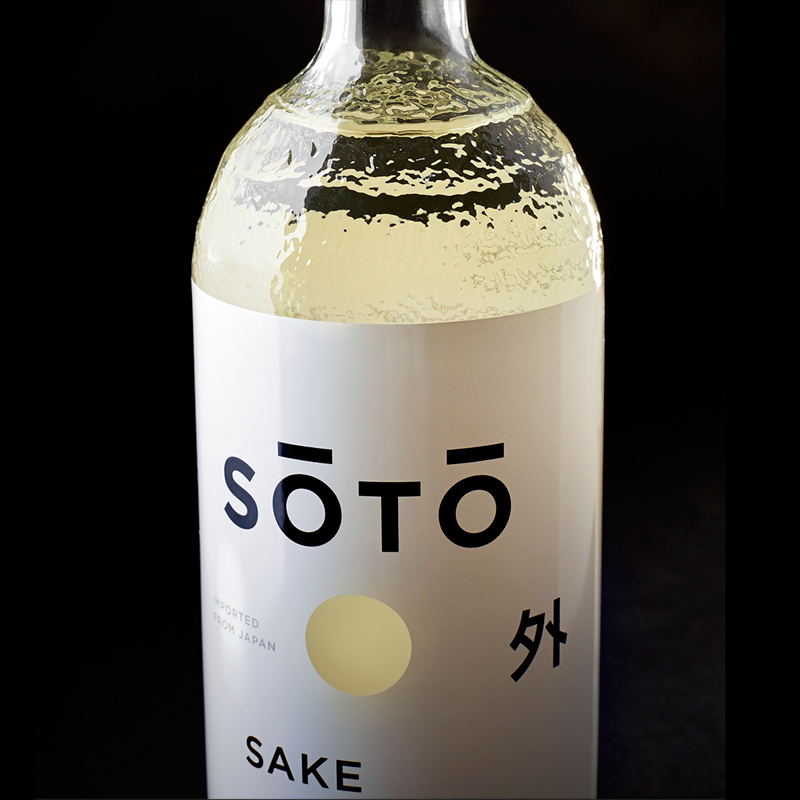Oakland’s Ever-Evolving Den Sake Brewery
Experimentation and dedication drive this fledging but flourishing company

While most of the sakes that line the shelves at Oakland’s Umami Mart are made in Japan, Den Sake Brewery produces just two miles away. Until recently, the company made just one small, numbered batch at a time, garnering attention from sake enthusiasts and experts (the brand has twice been a semi-finalist for the James Beard Award for Outstanding Wine, Spirits, or Beer Producer). This year, as they plan to open a larger brewery, Den Sake debuts their newest creation: Den Blanc made with white koji.
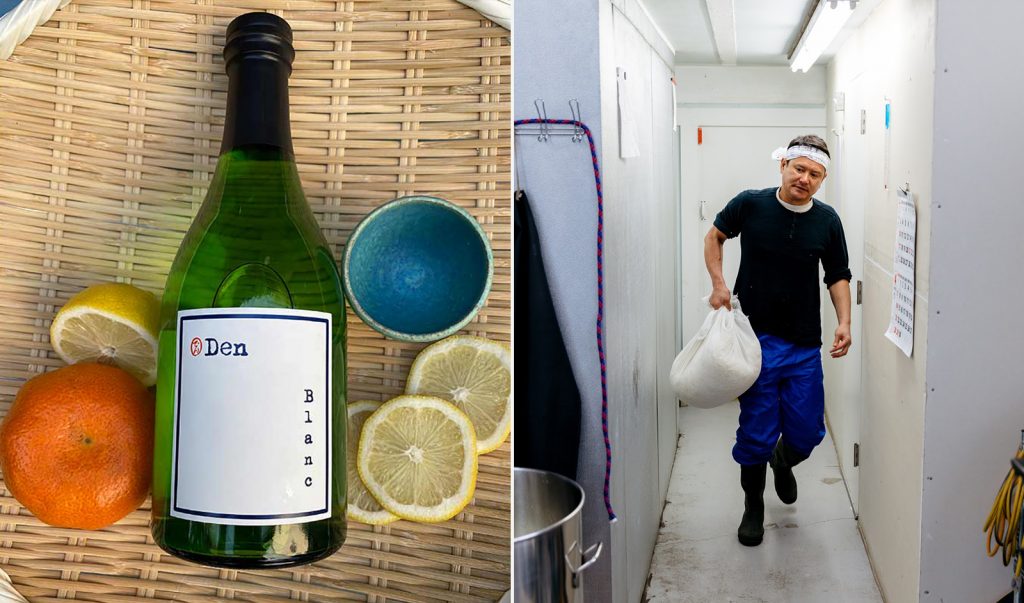
Den Sake founder Yoshihiro Sako, along with his partner and wife Lani Pederson-Sako, began making sake with a clear vision in mind. “We had the idea to brew a clean and aromatic sake with high acidity,” Sako tells us. “I love wine. I am used to eating food with acidic beverages and wanted my sake to have that acidity as well.”
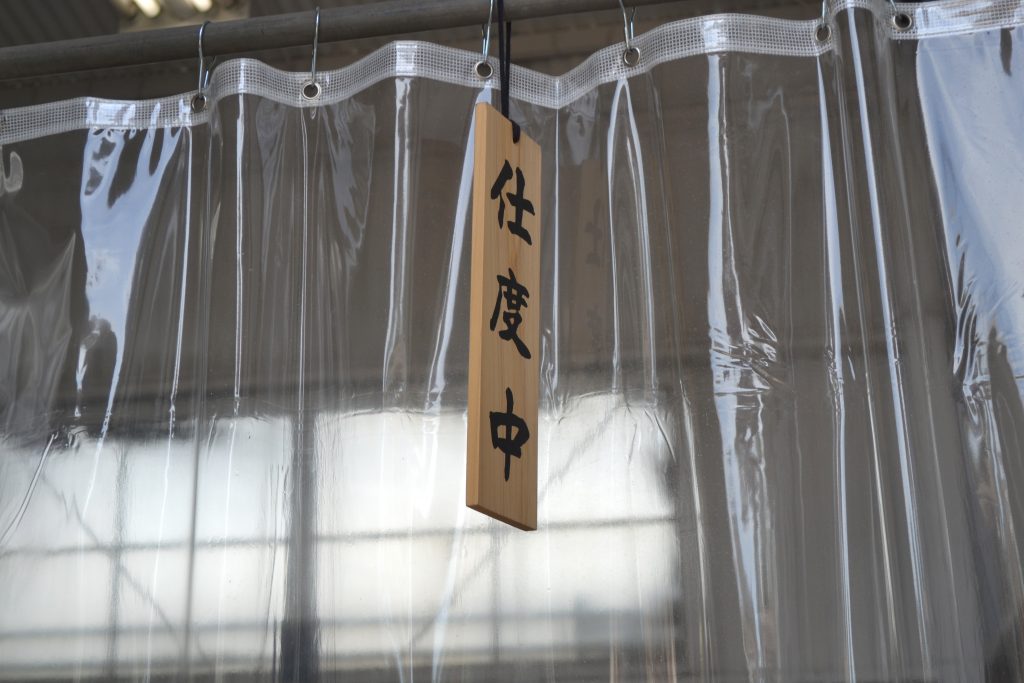
Just a few years ago, he began making sake in a makeshift shed and tent within a friend’s backyard. Through trial and error Sako experimented with rice, water, koji and yeast to make a sake that would pair not only with Japanese foods, but also with diverse flavors of other cuisines from around the world. While Sako was searching for a more permanent location to make sake, mutual friends introduced him to Paul Discoe, founder of 02 Artisans Aggregate, located on Magnolia Street in Oakland. The upshot of that introduction is that Den Sake Brewery shares space with ceramicists, woodworkers, blacksmiths and a soba restaurant.
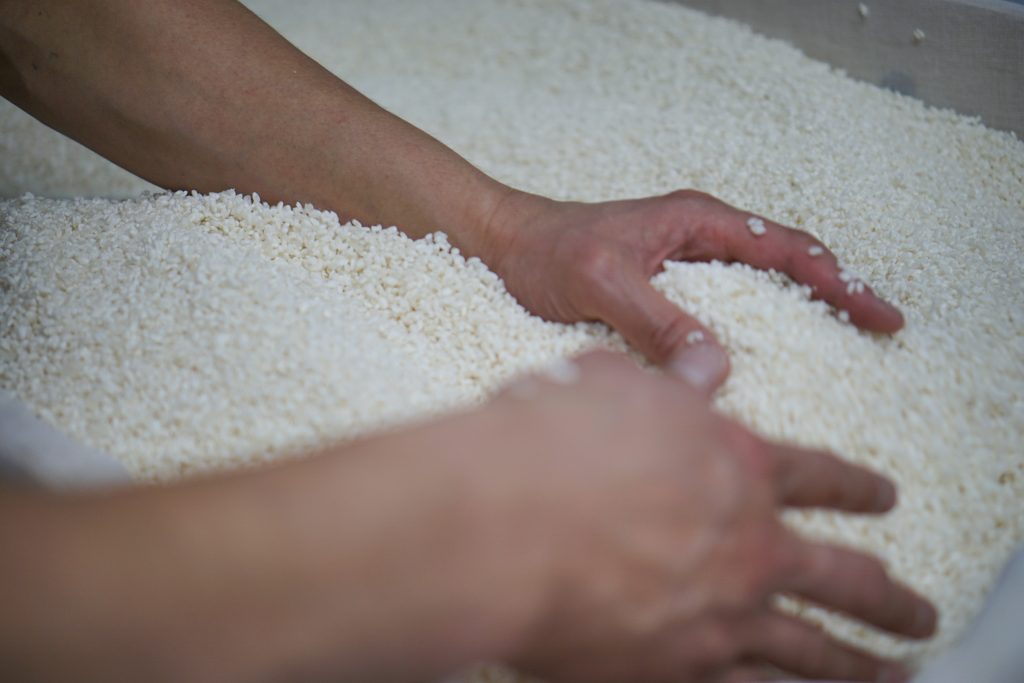
Den crafts their aromatic sake with single-origin Calhikari rice grown at Sacramento’s Rue & Forsman Ranch. “We took a tour of the farm and fell in love with it,” Sako says. “They have a natural way of farming. And they have a program for migrating birds.” The name “Den” relates the Japanese kanji character for rice paddy. “I wanted to focus on the fact that we know the farmer and which rice paddy our rice was grown,” explains Sako. “We put the farm name and rice varietal on the front label.”
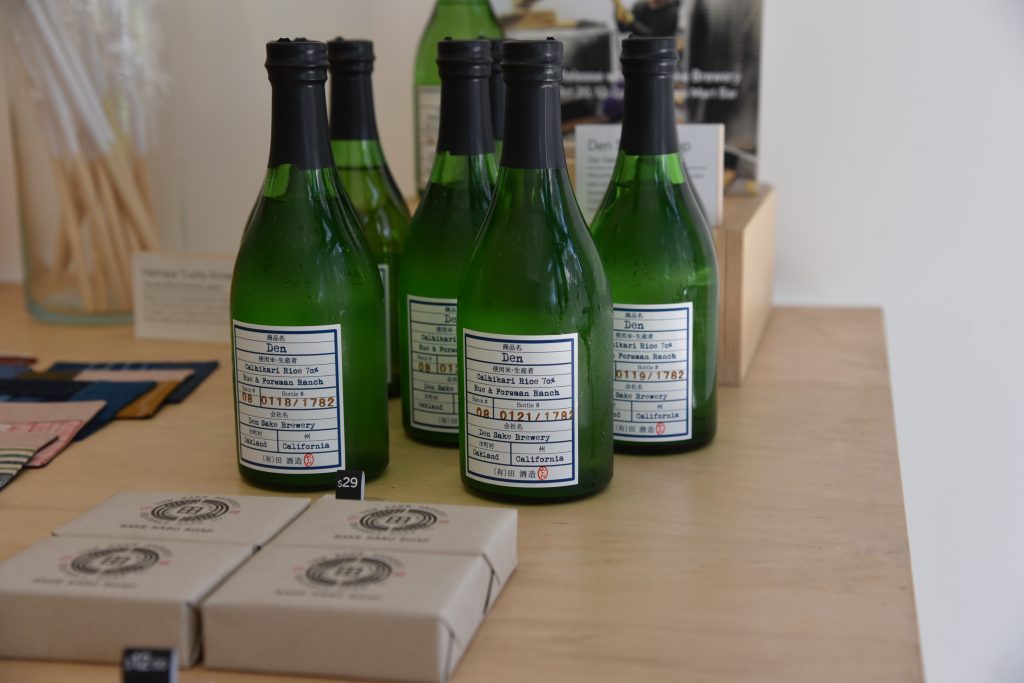
Once they found their rice source, the next decision was water. After some research and test batches, Sako discovered that Oakland tap water (from the Mukelumne River) provided precisely what he was looking for. “A lot of people use filtration because iron and manganese are evil for sake-making. This Oakland water does not contain it. I don’t want to change anything so I can bring out the natural characteristics of everything,” he says.

Sako numbers every batch to reflect each specific time and place. “In the beginning, I wanted to try different techniques and recipes,” he says. “I knew that some aspects of each batch would be different. Why not use it as a strength?” This year, when restaurant demand inevitably decreased, one batch was left to age a little longer. “The texture gets more round over time, with more depth and umami,” Sako explains. Now on batch #11, their Den Blanc’s use of white koji references more traditional shochu distilling. This transforms the brand’s flavor profile, bringing out citrus notes in their juicy, bold sake.
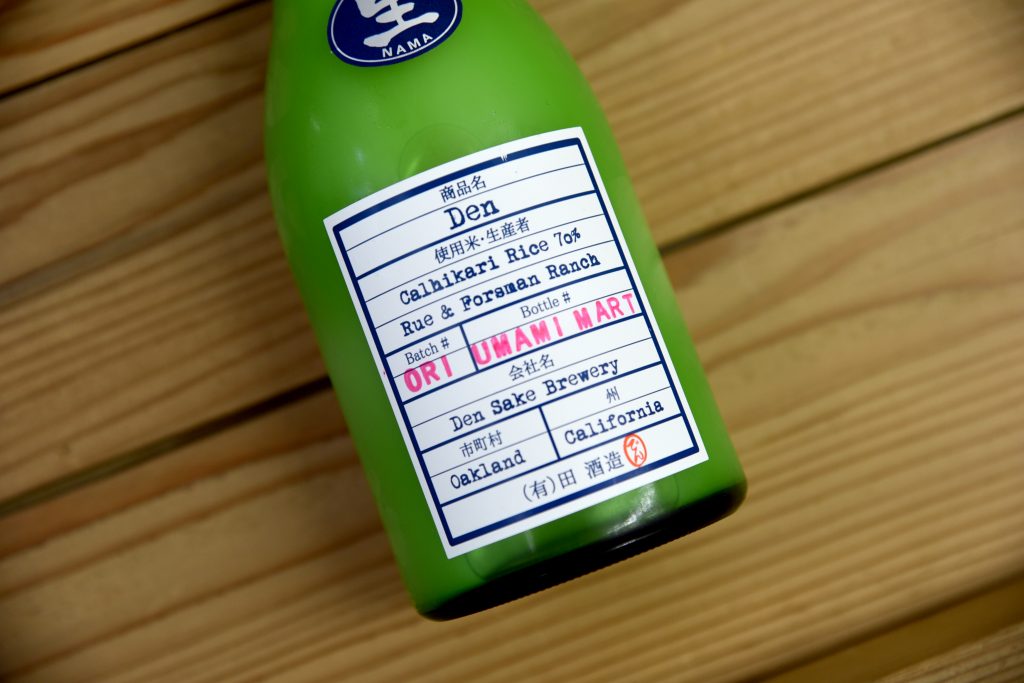
Umami Mart and Den Sake have worked together to be part of the Oakland culinary community. “It’s been amazing. Umami Mart bought batch #1 from day one. They have hosted so many Den Sake events. Oakland is very community-oriented,” explains Pederson-Sako.

This partnership began when Umami Mart’s Yoko Kumano and Kayoko Akabori first met Yoshihiro Sako when he was working as a sake sommelier at an izakaya in SF’s Mission District. “Then we heard he was making sake,” says Kumano. “It was really exciting that someone was making sake in small batches in the Bay Area, particularly in the East Bay… I first tasted it when he was brewing in our mutual friend’s backyard. I remember it being really alive.”

Sako’s dedication to sake and to experimentation was evident. Kumano says, “You could really tell he was so passionate about making sake. One day he showed up at Umami Mart with a bottle with no label and said, ‘It’s ready.’ Our staff tried it and we thought, ‘This is really impressive.’ It was so good, unlike any of the sakes that had been made in the US. We were really excited and ordered right away.”
As Den Sake plans on buying more tanks, moving to a bigger space, scaling up production and opening their own tasting room, the sake itself continues to evolve. This is thanks to Sako’s approach, which succeeds thanks to curiosity, experimentation and a solid foundation. Kumano says, “He’s more of an intellectual when it comes to sake.”
Images courtesy of Den Sake and Umami Mart

